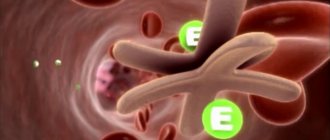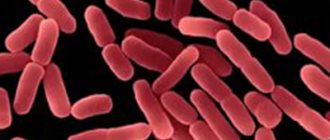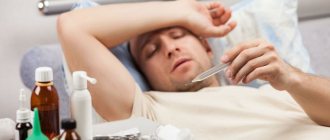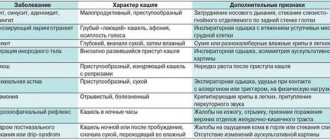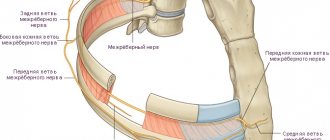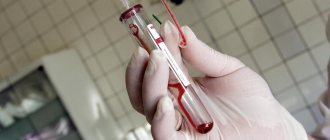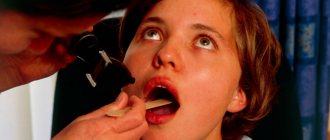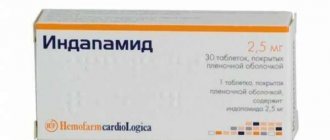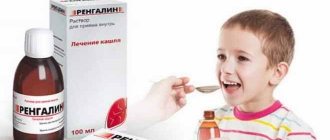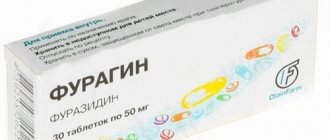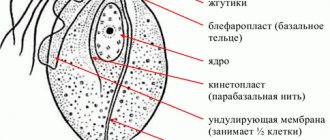Which doctor treats cystitis in women?
Cystitis is a specific disease that requires complex and systemic therapy. Doctors of several specialties provide treatment.
| Doctor | Responsibilities |
| Therapist | Identifies inflammation and its causes. Conducts laboratory tests, determines the causative agent of the pathology, and prescribes medications. In difficult cases, the patient is referred to specialists of a narrow specialization |
| Urologist | He is not only a men's doctor. The discipline of urology deals with the study of male reproductive function. Treatment of the male and female genitourinary systems. The urologist selects medications and eliminates cystitis |
| Gynecologist | Often he is the main specialist in the treatment of cystitis. Timely examination by a doctor facilitates treatment, prevents the occurrence of inflammation and complex pathologies |
| Nephrologist | It will help not only with kidney disease, but also with cystitis. Will give directions for the necessary tests. Then he will prescribe treatment |
Women usually turn to a gynecologist and therapist. Doctors prescribe pills for cystitis and quick treatment of inflammation.
Tablets for the prevention of cystitis
For preventive purposes the following are used:
- Nitrofurantoin and Cephalexin in low doses once after sexual intercourse for postcoital cystitis. To prevent seasonal relapses, long-term use of small doses at night is prescribed. You should not take Trimethoprim due to the high resistance of E. coli to the active substance.
- Uro-Vaxom. Contains antigens of 18 types of Escherichia coli, which most often cause re-exacerbation of cystitis. During use, the body's immune forces are strengthened.
- Cystitis. It is a homeopathic remedy. Helps relieve inflammation and has a sanitizing effect.
Medicines for cystitis: a review of antibiotics
Cystitis: a review of remedies for pain and inflammation
Treatment regimen for bladder inflammation
If cystitis is detected, the doctor recommends comprehensive treatment. He takes into account that in addition to the bladder, the intestines and genitals become inflamed. Kidney function is impaired. Complex therapy consists of following the rules of a healthy diet, performing constant hygienic procedures and treatment with medications.
The article discusses tablets for the quick treatment of cystitis in women.
The treatment regimen is prescribed by a urologist, gynecologist or therapist. Be sure to do an analysis for bacteria in the bladder. This will show the susceptibility of diseased cells to drugs. For any form of the disease, antibiotics are prescribed. They localize pathological cells, prevent their spread, and eliminate the causes of inflammation.
There are more than 30 types of antibiotics used to treat cystitis. The doctor chooses the one that effectively fights the causative agent of the disease. At the same time, the individual tolerance of the drugs and the presence of contraindications in the patient are taken into account.
In severe forms of cystitis, pill therapy is often ineffective. The doctor prescribes solutions for injections. Injections are given into a vein or muscle in a hospital. The procedures are supervised by an experienced nurse. Improvement in the patient's condition is observed after instillations. The medicine enters the diseased organ through the urethra.
This promotes maximum penetration of the drug into the inflammation zone. The remaining organs receive a minimum of harmful effects from drugs.
The treatment regimen for cystitis also includes herbal preparations. Prescribed for simple types of inflammation without pain. Herbal medicines are prescribed simultaneously with antibiotics. Herbs relieve pain and swelling. Removes toxins and germs. Increases immunity and the effect of antibiotics. Reduce the occurrence of negative manifestations and consequences.
Physiotherapy sessions are used simultaneously with herbal medicines. The procedures stop the spread of infectious bacteria. They alleviate the condition and speed up treatment. Some manipulations are simple and can be done at home.
This treatment regimen works gradually. In cases of severe pain and decreased urine outflow, the doctor supplements the therapy with antispasmodics. The drugs weaken the involuntary muscles of the bladder and ureter. The patient’s well-being improves half an hour after taking the medicine.
Treatment with tablets and injections changes the flora of the gastrointestinal tract. The state of the human immune system deteriorates. To strengthen the body, the therapist prescribes immunostimulants and probiotics. After completing treatment, it is recommended to take tests to determine the number of harmful bacteria in the body. It is prohibited to independently change the prescriptions and dosage prescribed by the doctor.
How is cystitis treated?
Selecting a cure for cystitis on your own is a big mistake. Unpleasant symptoms will most likely disappear, but the cause of the disease will not be eliminated. In the worst case, self-medication will lead to the development of serious complications or the disease becoming chronic.
Before prescribing a course of treatment, the doctor must conduct a comprehensive examination, starting with an examination of the patient. With cystitis, there are usually no external changes. When pressing on the lower abdomen, painful sensations are observed. To clarify the diagnosis, laboratory tests are carried out:
- A complete blood count can detect symptoms of nonspecific inflammation, a high level of white blood cells, a large number of immature forms of neurophils and an increased erythrocyte sedimentation rate (ESR).
- A general urine test helps detect protein, high levels of bacteria, red blood cells and white blood cells. If the level of leukocytes is exceeded, then a three-glass test and a urine test using the Nechiporenko method are additionally prescribed.
- Bacteriological examination of urine is carried out to identify the pathogen. Determining the culprit of the disease will allow the course of therapy to be targeted and more effective, and the chances of a full recovery will increase significantly. Such a study makes it possible to conduct an antibiogram to establish the sensitivity of pathogenic bacteria to various groups of antibiotics.
- Cystoscopy is performed if cystitis is chronic. In the acute form of the disease, the procedure is not prescribed, as it promotes the spread of infection and is painful.
- Ultrasound examination (ultrasound) helps to detect stones in the bladder, determine the condition of the urinary tract and nearby organs. Allows you to exclude malignant and benign tumors.
Based on the examination results, the urologist prescribes antibiotics, herbal remedies and antispasmodics.
Can I use painkillers?
Acute cystitis is accompanied by severe pain caused by infection and cramping. Bladder tissue swells. Erosion occurs on the walls of the organ. Urine gets into the inflamed areas of the mucous membrane and irritates it. Pain occurs.
To reduce pain symptoms and burning sensation, doctors prescribe drugs from the analgesic group. Spasms also appear due to the inflammatory process. Slow and prolonged muscle contraction causes disruption of blood flow. Leads to scanty urine output. This causes congestion, which causes pain. To reduce it, suppositories and tablets are prescribed to relieve spasms.
Antispasmodics should not be taken if blood is detected in the urine, since uterine bleeding is possible. For acute pain, the doctor prescribes non-steroidal drugs to relieve pain. In addition to complex medications, tablets intended only for bladder therapy are recommended. They muffle the burning sensation, relieve pain, and improve the general condition.
Vaginal suppositories are also recommended for pain relief.
Their advantages:
- local action;
- minimum of side symptoms;
- rapid pain relief;
- an alternative to tablets for ulcers.
Painkillers make you feel better. But often the effect of the tablets ends quickly, and it is undesirable to take them several times a day.
Therefore, to reduce pain, soothing baths are used:
- warm foot baths;
- sitz baths in warm water with chamomile or potassium permanganate;
- a heating pad with warm water on the lower abdomen.
During treatment of cystitis, you should not go to hot saunas and baths. Hot air complicates inflammation. Heating in any form is also prohibited for hemorrhoids and purulent inflammation of the ureter.
Pharmacies offer many drugs for pain relief. It is important to remember that these remedies relieve pain temporarily and do not cure cystitis. Therefore, they must be taken simultaneously with antibacterial medications.
Quick relief of symptoms with medications
The main symptom of the disease, which requires a timely response, is pain in the abdomen and back. Therefore, the question of how to quickly and permanently relieve pain from cystitis at home is always acute for people who are faced with this problem.
There is a large selection of drugs on the market that quickly relieve the symptoms of cystitis. The choice of remedy depends on a number of factors, including the nature of the disease, the degree of pain and the characteristics of the individual person’s body.
Tablets that quickly help relieve pain symptoms of cystitis are divided into 3 separate groups:
Non-narcotic analgesics
This group of drugs for cystitis is suitable for quick pain relief and is exclusively an anesthetic that does not affect the body and is not used for medicinal purposes. Most often, such analgesics are used for acute pain on the recommendation of the attending physician. This group of drugs includes: analgin and drugs based on acetylsalicylic acid, including Citramon and Aspirin.
Nonsteroidal drugs
Drugs that quickly help alleviate the symptoms of cystitis include non-steroidal drugs that reduce acute pain attacks and have minimal anti-inflammatory effects.
Non-steroidal tablets also have side effects, therefore they are recommended only for those patients who do not have individual intolerance to the substances and contraindications for use.
Among these funds are:
- Ketanol, which has an antispasmodic and analgesic effect;
- Nimesulide and drugs similar in composition and mechanism of action;
- Ibuklin, which has a complex effect - antipyretic and analgesic.
You should also select a drug from this pharmacological group with caution; before choosing a drug, it is better to consult a doctor.
Antispasmodics
This group of drugs provides quick and effective treatment of pain symptoms during cystitis if the pain is caused by spasm. For static pain, these painkillers have low effectiveness.
Among the most common products in this category are “Papaverine”, “No-shpu”, “Baralgin”, “Spazmalgon”.
Tablets for the rapid treatment of cystitis in women
Tablets for cystitis in women (quick treatment and improvement of the condition are possible with the prescription of effective drugs) are prescribed from the following series:
- Monural - granules for preparing a solution. A new fast-acting antibiotic. Dissolve the contents of the 3 g sachet in 0.3 cups of water. Drink 1.5 hours before meals, in the evening. It is advisable to take the medicine with an empty bladder. The price ranges from 350 to 480 rubles.
- Nolitsin - antimicrobial tablets. Drink on an empty stomach with 0.8 glasses of water twice a day. For mild inflammation, 3 days of treatment is sufficient. Chronic cystitis requires long-term use, up to 8 days. The dosage is 400 mg. Price 160-310 rubles, depending on quantity.
- Palin – bactericidal tablets and capsules. Before treatment, a test for tolerance to pipemidic acid is required. Prescribed to take before breakfast and dinner, with an interval of 12 hours, without chewing. The dose is 200 mg. Treatment lasts 8-10 days. In difficult cases, it is extended to 2 weeks. The price of tablets is 80-100 rubles, capsules - 190-240 rubles.
- Norfloxalin is a widely used antimicrobial drug. They produce eye and ear drops and tablets. For uncomplicated cystitis, take 2 tablets twice a day. Daily dosage – 800 mg. The course of therapy is 8 - 10 days. The price of tablets ranges from 120-150 rubles.
- Furagin - antimicrobial tablets. Prescribe 2 pieces 4 times after meals. The maximum course of therapy is 10 days. Average price 190 rub.
How to get rid of the disease during menopause
Women during menopause are most susceptible to bladder inflammation. This is due to hormonal changes in the body and a decrease in the production of female sex hormones that previously protected the body.
Without timely and proper treatment, cystitis can become chronic.
Cystitis during menopause is treated with drugs that have anti-inflammatory, antibacterial and antispasmodic effects. It is also recommended to use hormone replacement therapy, which is aimed at balancing a woman’s hormonal levels. The doctor may prescribe suppositories containing estriol (Estriol, Ovestin, Estrocad).
Cystitis tablet once
Tablets for cystitis in women (quick treatment is necessary in special cases) are offered by modern medicine. Inflammation of the genitourinary system is relieved over a period of a week or more. The use of medications for a long time has a harmful effect on the body.
Accelerated therapy reduces the side effects of antibiotics, instantly improves the patient’s condition, and makes it possible to do without sick leave. Today, the pharmaceutical industry produces the strongest antibacterial drugs. They relieve inflammation in the shortest possible time.
Once prescribed:
- Levofloxacin is a bactericidal antimicrobial tablet. Drink 1 time 1 hour before meals. Take the tablet without chewing and take it with a glass of water. The dosage is determined by the form and severity of inflammation. For cystitis, it is prescribed to take tablets for up to 3 days. Price from 580 rub. per pack of 10 tablets.
- Cefixime is a new antibiotic. Take 1 tablet once a day. The daily norm is 400 mg. If signs of cystitis appear, repeat taking the drug after three days. Price 550-580 rub.
- Ceforal is a bactericidal, antibacterial drug. Dissolve the tablets in water or take them whole, regardless of food. Daily dose – 400 mg. The average cost is 550-850 rubles.
- Ecomural is an antibiotic in granules. Dissolve the powder in 0.5 cups of water. Drink on an empty stomach in the evening. Single dose – 3 g. Price 350 rubles.
Other risk factors
Very rarely, cystitis in girls occurs in isolation. The prerequisites themselves, for the most part, are conducive to the formation of a general inflammatory process in the pelvic organs: this includes wearing tight underwear made of artificial fabrics, and frequent changes of sexual partner, and ignoring the rules of intimate hygiene. All this leads to the fact that the girl independently provokes the appearance of suitable conditions for the reproduction of agents of pathogenic microflora. According to statistics, approximately eighty percent of the causative agents of cystitis are E. coli, ten to fifteen percent are staphylococcus, and about four to five percent are other pathogens, such as Klebsiella, amoeba-proteus, etc.
There are a number of conditions that are at high risk for cystitis:
- Inflammation of the vagina (colpitis) and diseases transmitted through sexual intercourse. Given the anatomical proximity of the vagina and urethra, the appearance of cystitis is only a matter of time.
- The same can be said about constipation and other problems with the intestinal tract (colitis, etc.). Bacteria from the large intestine, also due to the anatomical proximity of the anus and external sexual organs, can cause the development of acute cystitis.
- Nephrological diseases: kidney stones, nephritis and pyelonephritis, urinary retention. According to the descending principle, the infectious disease often descends from the kidneys to the bladder, and with stagnation of urine, extremely serious pathologies and forms of cystitis have every chance of forming.
- Peak hormonal states. Pregnancy, menstrual cycle, menopause, etc. The root cause lies in changes in hormonal levels and, as a result, in the microflora of the mucous membranes of the vagina and urethra.
- Predisposing conditions also include endocrine diseases, especially diabetes.
- Allergy sufferers, as well as cancer patients undergoing chemotherapy, enter the risk category.
Regardless of the factors and source of the disease, inflammation contains a typical symptomatic complex:
- Frequent and painful urination. Heartburn, nagging pain in the bladder and urethra.
- False urge to urinate.
- Urinary incontinence (in some cases);
- Increased urge at night without increased urine production.
- Constant pain in the pubic and perineal area, radiating to the lower back and tailbone. Clearly manifested pain at the beginning and end of urination.
- Urine is dark or cloudy, mixed with pus.
- General manifestations of intoxication.
If the factor is hidden in an allergy, unbearable itching and burning in the urethral area may occur. But there is a medicine for cystitis in women, 1 tablet of which will help get rid of the symptoms.
The best antibacterial drugs
To prescribe antibiotics, a urine test is done to check for bacteria. Cystitis is usually caused by E. coli and staphylococcal bacteria. Symptomatic therapy brings temporary relief and does not eliminate the cause of the disease.
In this case, antibacterial agents are prescribed:
- Amoxiclav is a widely used drug. Take 1 tablet once a day, an hour after lunch. For complex infections, the dosage is increased as prescribed by the doctor. The course of therapy is 10 days. Price 360-520 rub.
- Sumamed is an antibiotic in capsules, tablets and powder. For cystitis - 2 tablets of 500 mg once a day, 1.5 hours after breakfast. Cost 490-550 rub.
- Ciprofloxacin is an antimicrobial drug with bactericidal action. Prescribe 250 - 750 mg twice a day, depending on the severity of inflammation. Take tablets after meals. Price 40-50 rub.
- Ofloxacin is an antimicrobial antibiotic. Daily dosage is from 200 to 400 mg. Take after breakfast and dinner. Do not chew, drink 0.3 glasses of water. Duration of therapy is 5-8 days. Price 50-60 rub.
- Nevigramon – antibacterial capsules. Drink 2 pieces 4 times 1.5 hours before meals. Treatment lasts a week. Price 3300-4500 rub.
- Rulid is an antibiotic against infections. Daily dosage – 1 tablet of 150 mg twice a day. Price 1400-1600 rub.
The list of antibiotics used for bladder inflammation is long. It should be noted that free sale and frequent use have made the drugs less resistant to bacteria. Therefore, a doctor must prescribe the drug.
What medications are needed for complete treatment?
In order for the treatment to be complete, medications must have certain properties: eliminate the pathogen, relieve pain.
Antibacterial drugs
Antibiotics quickly destroy pathogenic microflora. It is important to take them for a certain period of time recommended by your doctor: 5, 7 or 10 days. If you do not follow this rule and stop taking medications ahead of schedule, then the causative agent of cystitis may develop resistance (addiction) to the action of the medication. In this case, pathogenic bacteria will not be completely destroyed.
The optimal course duration is 3 and 7 days. According to recent research, there is no benefit to taking antibiotics longer.
The most popular and effective means in the fight against cystitis pathogens are antibiotics from the fosfomycin and fluoroquinol group. If the patient has an individual intolerance to such drugs, then nitrofurans, chloramphenicol, and cephalosporins are prescribed.
Approximate treatment regimen for cystitis:
- Norfloxacin – 400 mg twice a day. Course duration – 3 days.
- Monural – 3 g once a day. Use for 3 days.
- Ciprofloxacin – 250 mg twice a day. The duration of therapy is 3 days.
Self-treatment of cystitis in very rare cases leads to complete recovery of the patient. To choose the right antibiotic, you need to undergo a comprehensive examination. During the treatment period, monitoring the dynamics of the patient's condition is required. In addition, many antibiotics have absolute contraindications for use.
Today, treatment with Furagin, Furadonin, Ampicillin, Biseptol, Cephalexin, Cefradin is considered ineffective, since the causative agents of the disease have developed resistance to them.
Inexpensive antibacterial drugs for cystitis:
Nolitsin
It is a broad-spectrum antibiotic. It is usually prescribed in cases where other means do not give the desired result during therapy. Nolitsin is contraindicated for children under 18 years of age and is prescribed with caution to pregnant women and people suffering from epilepsy and vascular atherosclerosis. The use of Nolitsin in patients with liver disease and renal failure is undesirable.
The estimated cost of the medicine is 150–300 rubles.
Nitroxoline
It is an analogue of the drug 5 NOC. Nitroxoline treats pyelonephritis, cystitis, urethritis, epididymitis. The antibiotic is contraindicated for liver disease and kidney failure.
The average cost of the drug is 60–70 rubles.
Palin
The antibacterial agent belongs to the quinolone series. Used successfully in the treatment of urinary tract infections where the bacteria are susceptible to pipemidonic acid. Palin should not be taken if you are hypersensitive to the components of the drug or if you are pregnant or lactating. And also for children under 15 years of age. The approximate price in Russian pharmacies is 250–280 rubles.
Monural
Monural is a modern and safe medicine for cystitis that can be used even in pregnant women.
It is one of the most inexpensive and most effective antibiotics used for the treatment of cystitis. The price is about 300 rubles. Monural is not prescribed to children under 5 years of age and to people allergic to the components of this medicine. Before use, the powder must be dissolved in water and consumed exclusively on an empty stomach once a day.
For people who have the opportunity to purchase antibiotics at a higher price, drugs such as Nevigramon and Rulid are recommended.
- Nevigramon is nalidixic acid, which is characterized by high antibacterial activity. Excellently tolerated by patients. The cost ranges from 3200 to 4400 rubles.
- Rulid is a semi-synthetic antibiotic with a wide spectrum of action. Refers to macrolides. Used exclusively as prescribed by a doctor. The average cost ranges from 1100 to 1200 rubles.
Antispasmodics
Eliminate spasms and pain, which is one of the main symptoms of cystitis. The inflammatory process spreads to the muscles, which causes pain when filling and sharp pain when emptying the bladder. Nosh-pa, Baralgin, Papaverine relieve muscle tension, thereby reducing painful sensations. The price ranges from 50 to 100 rubles.
Antispasmodics are available in various forms, such as tablets, water-soluble powder or suppositories. The effectiveness of a particular drug does not depend on the form of use.
Anti-inflammatory drugs
Similar agents (Nimesil, Diclofenac) are used to interrupt the chain of biochemical reactions that cause the inflammatory process. This reduces local swelling and plethora of the affected tissue, which relieves pain.
Non-steroidal anti-inflammatory drugs are also used in therapy: Ibuprofen, Ibuklin, Faspik, Nurofen, Mig. The drugs should be used if cystitis is accompanied by severe pain. The cost ranges from 30 to 100 rubles.
Herbal remedies
Such remedies give excellent results if cystitis occurs without an increase in body temperature and severe pain. Most often, herbal medicines are used as part of complex therapy with antibacterial agents.
Cyston
It has a diuretic, antimicrobial and anti-inflammatory effect. The drug contains more than 10 different plant extracts. Long-term use ensures the dissolution of kidney stones, enhances the effect of antimicrobial drugs, and reduces inflammation. Available in tablet form. The average cost in the Russian Federation is 430 rubles.
Monurel
The herbal medicine is made on the basis of cranberries and is a highly concentrated extract. Cranberry has been used since ancient times to treat cystitis, as it has an antimicrobial and diuretic effect. Available in tablets, long-term use of which prevents relapses of the disease. The average price in Russian pharmacies is 450–500 rubles.
Lingonberry leaves
Lingonberry leaf is one of the best medicinal non-drug medicines against cystitis.
An inexpensive product that destroys Staphylococcus aureus and has an astringent, anti-inflammatory and diuretic effect. The drug is indicated for use in pyelonephritis, gonorrhea, nephropathy, and cystitis. Helps improve immunity, ensures higher effectiveness of taking antibiotics. Filter bags containing lingonberries are less effective than regular dry leaves in packs. The cost in Russian pharmacies is 40–50 rubles.
Phytolysin paste
The product is made on the basis of 9 different herbs and is their aqueous-alcohol solution. It has an anti-inflammatory and diuretic effect, eliminates muscle spasms. Helps remove sand from the renal pelvis and ureters. The average cost in Russian pharmacies is 300–350 rubles.
Canephron
The drug is available in the form of tablets and solution. Regular use of Canephron reduces pain during urination and the likelihood of relapses if cystitis is chronic. The product is made on the basis of medicinal herbs: centaury, lovage, rosemary. The price in Russian pharmacies is 350–400 rubles.
Probiotics
The occurrence of cystitis is directly dependent on the condition of the urinary tract, intestinal and vaginal microflora. For this reason, in addition to antibiotics and herbal remedies, you should undergo a course of treatment with pribiotics that restore the microflora: Hilak Forte, Bifiform, Acipol, RioFlora Immuno.
Antispasmodics
Tablets for cystitis in women (antispasmodics will provide quick treatment) will relieve burning pain when urinating and normalize the functioning of the urinary system.
Antispasmodic medications are used - tablets, dragees and suppositories:
- No-spa – 1-2 tablets 3 times a day. Self-treatment – 3-4 days. Price from 70 to 250 rubles. depending on the number of pieces in the package.
- Canephron is a pill. Drink 3 times, 2 pieces each, do not chew. Average price 500 rub.
- Streptocide - drink 2 tablets 2-3 times a day. The course of therapy is 5 days. Price 40 rub.
- Papaverine - suppositories. Eliminate spasms, dilate blood vessels. Inject 1 suppository into the rectum, 2-3 times a day. They cost 60 rubles.
- Diclofenac - suppositories. Block pain, stabilize temperature. Prescribe 1 piece per day after bowel movement. Price 48 rub.
Painkillers temporarily make you feel better. But they do not eliminate inflammation.
Quick relief of symptoms using traditional methods
In addition to traditional medicine for cystitis, there are traditional methods that can quickly relieve pain symptoms.
How to relieve pain at the first signs of cystitis using traditional methods has been known since the onset of the disease. It is noteworthy that traditional medicine methods are sometimes more effective than classic pills.
To combat this disease, decoctions based on medicinal plants are mainly used.
Popular and effective methods of traditional medicine are:
- Tea based on chamomile, calendula, St. John's wort and thyme. A tablespoon of such ingredients is poured into 1 cup of boiling water and infused for 15 minutes. To obtain the maximum and fastest effect, the decoction is consumed 3 times a day.
- A mixture based on hemp seeds, which is prepared at the rate of 1 spoon of seeds per 300 grams of warm milk. Also, water is used instead of milk.
- Rose hip decoction. To prepare, you need to mix 2 tablespoons of crushed rosehip roots and 1 glass of water. The finished mixture should be boiled for 25 minutes over low heat. Then leave the broth for 2 hours and strain through cheesecloth.
- Tincture of chamomile flowers and horsetail. To prepare, you need to take 1 spoon of ingredients and pour a liter of boiling water. Infuse the decoction for 10 minutes and drink in small sips throughout the day.
There are also traditional methods that help quickly minimize pain in chronic cystitis. Among these methods, the following are popular:
- Hop tincture. To prepare the tincture, take 2 tablespoons of grated or finely chopped cones of this plant and pour a liter of boiling water. The tincture takes 60–90 minutes to prepare. After which you need to strain the product through cheesecloth and drink it daily in the morning and evening;
- Chicory tincture, which is made using 3 teaspoons of chicory and 0.5 liters of boiling water. The product is infused for 2 hours and consumed 4 times a day. The entire course of treatment must last at least 2 weeks. This tincture not only minimizes pain, but also helps cure cystitis forever.
Anti-inflammatory drugs
Anti-inflammatory drugs are prescribed in complex therapy of cystitis:
- Nimesil - granules with a fruity odor. Dilute in 150 ml of water. Drink 1 packet in the morning and evening after meals. Cost from 300 to 600 rubles, depending on the number of bags in the package.
- Cyston is a combination medicine. Prescribe 2 tablets in the morning and evening after meals. Price 390-430 rub.
- Diclofenac - tablets. Drink 1 piece up to 3 times a day. Price 70 rub.
- Voltaren - rectal suppositories. Administer 1 piece up to 3 times a day, after emptying the intestines. Price 300 rub.
- Indomethacin - suppositories. Inject 1 suppository of 100 mg into the rectum in the evening. They cost from 80 to 110 rubles.
Long-term treatment with anti-inflammatory drugs provokes the development of adverse symptoms.
Anti-inflammatory
Toxins that pathogenic microflora secrete during their life activities lead to the development of inflammatory processes in the mucous membrane of the bladder. The patient feels pain of varying strength and character. The nature of the pain can range from dull and aching to sharp cutting. The function of emptying the bladder is also impaired. Anti-inflammatory drugs prescribed in this case do not cure the pathology, but effectively eliminate all signs of inflammation, which, in turn, will speed up the healing process.
For inflammation of the bladder, medications containing non-steroidal components (NSAIDs) are used. Many of these drugs have an adverse effect on the mucous membranes of the stomach and intestines. Due to the use of non-steroidal anti-inflammatory substances, there is a risk of developing complications such as gastritis, colitis, ulceration of the mucous membranes of the gastrointestinal tract. Therefore, recently, selective non-steroidal drugs (coxibs), which act selectively on the site of inflammation and are gentle on other organs and systems, have become more popular. Taking drugs from this group, such as Valdecoxib, Rofecoxib, Celecoxib and others, will provide rapid treatment of inflammatory processes in the urinary system.
In the absence of contraindications from the gastrointestinal tract, traditional non-steroidal drugs can also be used.
- Ibuprofen. These tablets for bladder inflammation will help eliminate the painful manifestations of the pathology. The medicine has both an indirect effect on the site of the disease and through the central nervous system. The drug is taken 1-2 tablets 4 to 6 times a day, without exceeding the highest daily dose of 6 tablets. The course of treatment lasts no less than three and no more than five days;
- Paracetamol. Effective anti-inflammatory tablets for cystitis. The drug inhibits the production of mediators of the inflammatory process. Prescribed 1-2 tablets three times a day. In this case, the medicine should be taken with plenty of clean water. It must be borne in mind that long-term use of Paracetamol can lead to toxic damage to liver cells;
- Ketorol. Good painkillers will also be effective for inflammatory diseases of the bladder. To relieve pain during urination, the medicine should be taken 1 tablet. The maximum daily dose is 4 tablets. Taking the drug should last no more than 5 days;
- Nimesulide. This remedy very quickly suppresses the inflammatory process in the body. The medicine is prescribed 1 tablet twice a day. The duration of the course of treatment is selected by the doctor individually;
- Valdecoxib. A new drug with a selective anti-inflammatory effect. Take 1 tablet per day.
In order not to harm the body with side effects and not to cause a number of complications, you should take anti-inflammatory drugs only in accordance with the recommendations of your doctor. Otherwise, even the most effective drugs can harm the patient’s body.
Herbal remedies
Herbal preparations relieve inflammation, spasms, and have a mild diuretic effect.
Doctors prescribe:
- Urolesan - syrup, drops and capsules. Drink 1 capsule three times a day before meals. Price from 300 to 400 rubles. The duration of therapy is from 10 to 30 days.
- Monurel is a food supplement with cranberries. Take 1 tablet in the evening. Price 360-440 rub.
- Phytozolin is a paste based on extracts of medicinal plants. Prescribed 0.5 dess. l. Dissolve in 0.5 glasses of water, take an hour after meals, 2-3 times. Price 350 rub.
- Lingonberry leaf – tea bags. Pour a glass of boiling water over the bag and leave for 20 minutes. Filter, drink 150 ml with meals 2 times a day. Costs 50-70 rubles.
- Canephron is considered not only a good antispasmodic. The composition of the dragee contains extracts of medicinal plants. Drink 2 pieces three times a day.
Many patients cannot tolerate antibiotics. And if the inflammation is not accompanied by acute pain and fever, doctors prescribe herbal medicines.
General principles of treatment
One of the main dangers of acute cystitis that occurs as a primary disease is that even a short absence of treatment can quickly lead to chronic inflammation. To prevent this, you should start treating cystitis at home immediately, that is, immediately after the first symptomatic manifestations occur.
In addition to traditional methods that will help cure cystitis at home, it is necessary to comply with the following rules:
- Drinking plenty of fluids will help remove toxins, relieve symptoms of cystitis in women, and reduce pain. To replenish the supply of useful microelements, it is recommended to use compotes and fruit drinks made from rose hips, hawthorn, and black currant.
- In order to prevent the spread of inflammatory processes, it is not recommended to warm up the abdominal area or visit a sauna or bathhouse.
- If attacks of acute pain occur, it is recommended to lie down under a warm blanket and take a suitable pain reliever.
- Throughout the entire period of treatment, you should consume a larger than usual amount of fermented milk products, fresh vegetables, berries, and fruits. This method of nutrition will help restore and normalize the state of microflora.
- Spicy, smoked, salty dishes, as well as confectionery products should be excluded from the usual diet. Consumption of products from this list may lead to increased pain.
To improve overall well-being, relieve pain, and eliminate inflammation, it is recommended to replace the usual black tea and coffee with herbal decoctions and infusions of medicinal plants. Herbs such as chamomile, linden blossom, and mint are quite suitable for making drinks.
Probiotics
After antibiotic therapy, probiotics are prescribed to restore intestinal flora:
- Linex capsules. Drink 2 pieces after meals up to 3 times a day. Price from 300 to 530 rubles. depending on the quantity in the package.
- Acipol - capsules. Prescribe 1 piece in the morning and evening after meals. Take 10 – 20 days. Price 260 rub.
- Lactobacterin is a powder for drinking. Apply 1 hour before meals, 2 times, 3-5 doses at a time. One dose consists of the contents of 1 bottle, diluted with 1 tsp. water. Price 170 rub. for 5 bottles.
- Bifiform – capsules, solution, tablets. For cystitis, capsules are convenient. 2 pieces at lunch and in the evening, regardless of food, drink 0.5 glasses of water. The average cost is 310-370 rubles.
- Rio Flora - capsules. Drink before breakfast and dinner. The dose is 4 pieces per day. Therapy lasts up to 2 weeks. Price from 500 to 640 rubles.
Medications
Medicines with anesthetic and antibacterial properties will help to effectively and, most importantly, quickly cure cystitis at home. For best results, it is advisable to start taking them when the first signs of inflammation of the urinary system appear. The following medications can help get rid of cystitis at home:
- Indomethacin, Diclofenac. The given medications have anesthetic properties. The components included in their composition effectively stop inflammatory processes, thereby helping to eliminate discomfort and pain in the urethra.
- No-Shpa, Ketorol, Baralgin. If you need to quickly treat the symptoms of pain, it is recommended to take these medications, as they have an antispasmodic effect, that is, such tablets quickly relieve pain.
- Monurel, Cyston, Canephron. Most often, treatment of cystitis is recommended by taking the listed medications, which contain medicinal herbs. These medications help normalize the microflora.
- Diflucan, Fluconazole, Lamisil. The listed drugs have antifungal properties; they are recommended for use against cystitis at home when the pathology was provoked by fungal microflora. As a rule, such forms of cystitis are often accompanied by the appearance of symptoms of candidiasis.
A common cause of cystitis is a bacterial infection, which must be treated by taking antibiotic drugs classified as nitrofurans, fluoroquinolones, and macrolides. It is recommended to take such medications for a short period of time, since there is a high probability of disruption of the natural microflora.
Important! You can take any medicine only with a prescription from your doctor. Self-administration of medications for cystitis at home can lead to unpleasant consequences.
Tablets for cystitis during pregnancy
According to statistics, more than 10% of pregnant women develop cystitis. The bladder becomes inflamed due to hypothermia of the pelvic organs, low immunity, and the appearance of pathogenic bacteria in the ureter.
Tablets for cystitis in women (quick treatment should not harm the intrauterine development of the child) are selected and prescribed by a gynecologist after an examination.
There are medications for pregnant women:
- Palin - tablets are prescribed from 12 to 24 weeks of pregnancy under the supervision of a gynecologist. Take whole, morning and evening, before meals. Daily dosage – no more than 200 mg. Price 100 rub.
- Nitroxoline - antimicrobial tablets. For acute inflammation, take 2-3 pieces up to 3 times a day. The course of therapy is up to 3 weeks. Price 90 rub.
- Canephron - drops or tablets. Herbal preparation, safe for pregnant women. Prescribe 50 drops 3 times a day or 1-2 tablets also 3 times. The price of drops and tablets is 450-500 rubles.
- Furadonin – bactericidal tablets. From the 13th week of pregnancy, drink 1 tablet of 50 mg three times a day. You can't chew it. Drink with a glass of water. The tablets are very bitter. Therapy lasts 7-10 days. They cost from 40 to 110 rubles, depending on the amount of mg.
Effective and quick treatment of cystitis in women is achieved not only with tablets - antibiotics and probiotics. Therapy is recommended, including herbal remedies and traditional medicine recipes.
It is advised to establish a rest regime, not to include harmful foods in the menu and to drink enough water. These rules, in combination with medication therapy, are the key to a quick recovery and good health.
Author: Shelikhan Marina
Symptoms of cystitis
Symptoms of the disease include:
- Presence of itching and burning when urinating. This symptom is characteristic of an infectious or allergic type of disease. The infectious specificity of the disease involves the release of toxins that enter the urine and irritate the mucous membrane of the genitourinary system. With the allergic nature of cystitis, this symptom is due to a large release of histamine.
- Painful sensations. The second common sign of cystitis is pain. The pain is most often concentrated in the lower abdomen and perineum. The level of pain varies widely and depends on the physiological characteristics of a particular person. Only 10% of diseases occur without severe pain. Also, pain with cystitis can affect the back area and be accompanied by general malaise, increased fatigue and fever.
- Presence of blood in the urine. Sometimes cystitis is accompanied by the presence of blood in the urine - hematuria. This symptom can be determined by the color of the urine, which takes on a slightly saturated pink or brick-red hue. The symptom is characteristic of viral type cystitis and, as a rule, indicates an acute or complicated course of the disease. With such symptoms, rapid independent treatment of cystitis is not recommended.
Mild symptoms of cystitis can be quickly relieved with the help of medications that are taken according to the doctor’s recommendations.
Macrolides
Many doctors prefer to treat cystitis in women with antimicrobial drugs belonging to the macrolide group. This is explained by the minimal toxicity of the drugs included in the group, a wide spectrum of action, a high therapeutic effect, as well as the extremely rare occurrence of unwanted side effects. In addition, these drugs have the greatest ability of all antibiotics to accumulate in body tissues.
Macrolides are highly effective in cases of individual hypersensitive reaction to penicillins and chronic cystitis. There will also be a high therapeutic effect in cases where inflammation is caused by protozoa. Medicines in this group are equally effective for treating both women and men.
Antibiotics of this group used to treat cystitis in women:
- Sumamed (Azithromycin). Available in tablets, capsules and powders for suspension. The instructions for the drug recommend that for acute cystitis, take 1.0 g of the drug once. The formula of the medicine is such that one tablet can cure an acute process. For chronic conditions, take 500 mg once a day for 5 days;
- Roxithromycin (Rulid). A universal macrolide that suppresses most types of pathogenic microflora. For cystitis, take 1 pill at a dosage of 0.15 g twice a day before meals.
Fluoroquinolones
Some Western scientists classify fluoroquinolone antibiotics as first-line drugs for cystitis. This is explained by the strong impact of the active components of the drugs on a large number of representatives of pathogenic microflora.
Domestic experts note that the frequent use of fluoroquinolone antibiotics gradually causes resistance of certain groups of bacteria.
However, domestic experts note that the frequent use of these antibacterial agents gradually causes resistance of certain groups of bacteria. In addition, fluoroquinolones provoke many side effects.
Taking medications in this group is not recommended for people under 18 years of age. The drugs are prohibited during pregnancy and lactation. They pose a danger to patients with severe damage to the central nervous system, liver and kidneys. Therefore, in Russia, fluoroquinolone antibiotics are classified as a reserve group of drugs for cystitis.
The most popular drug in this group for cystitis in women is Nolitsin.
The main active ingredient in its composition, norfloxacin, destabilizes the DNA chain in bacterial cells, leading to their death.
For uncomplicated cystitis, Nolicin is taken in tablets 60 minutes before meals, washed down with plenty of water. The course of treatment should not exceed 3-5 days.
Cephalosporins
This group of drugs, compared to penicillins, is more resistant to enzymes produced by pathogenic microflora. The high antimicrobial effect of cephalosporins is due to the addition of substances to the drug composition that neutralize the destructive effect of bacterial enzymes.
Drugs in this group destroy the bacterial walls of microorganisms during the reproduction process. This leads to the dissolution of the pathogen.
Antibiotics from the group of cephalosporins, often used for cystitis in women and men, include a list of such drugs:
- Cefotaxime. Helps in cases where therapy with other groups of antibiotics does not give a positive result. The drug is also highly effective in the chronic form of the disease. It is administered intravenously, pre-dissolved with water for injection. It can also be used intramuscularly, in which case the medicine must be diluted with a 1% lidocaine solution. The medicine is injected into the muscle very slowly, over 3 minutes. A single therapeutic dose is 1.0 g of the substance. Administered twice daily;
- Ceftriaxone. An effective antibiotic for chronic cystitis of the third generation. Used in the same way as Cefotaxime;
- Ceforal. Suitable for women, men and children over 12 years old. Cyforal is a third generation antibiotic for cystitis. 1 tablet is prescribed once or twice a day. After the symptoms of the inflammatory process disappear, the medicine is taken for another two to three days;
- Cefuroxime. Administered parenterally at 750 mg three times a day.
Description of the most popular antimicrobial agents
The modern pharmaceutical industry produces many drugs used for bladder inflammation. Let's look at the most effective antibiotics that promote recovery:
| Name and active substance. | Impact. | Dosage. | Peculiarities. | Contraindication. |
| Nolitsin (analogues are Normax and Norbactin). The active component is Norfloxacin, which is part of the group of fluoroquinolones. | An antibacterial drug that affects pathogens and bacteria. Prescribed for the disease in question, acute pyelonephritis or its chronic form, urethritis. | For uncomplicated acute infectious cystitis, take 0.4 grams of the drug in the morning and evening. Duration of treatment – from 3 to 5 days. | It is one of the most effective remedies for the treatment of cystitis and is prescribed if other drugs have not given the expected effect. Side effects include nausea, vomiting, bitterness in the mouth, and problems with stool. It is possible to discharge blood from the urethra, develop polyuria, dysuria, albuminuria and other pathologies. Possible complications include: hallucinations, rapid heartbeat, sleep problems, fainting, skin problems (itching, urticaria, possible development of erythema malignant). This product is not the cheapest, but quite affordable. | The drug is completely prohibited when carrying a child, and is not prescribed to children with intolerance to fluoroquinolones. Relative contraindications - epilepsy, negative reaction to acetylsalicylic acid, impaired blood circulation in the brain, atherosclerosis of the vascular system. |
| Monural is a broad-spectrum antimicrobial substance. | A combination of bactericidal and antimicrobial effects, prescribed for bacterial cystitis, pyelonephritis, urethritis. | For adults, a single dose is 3 grams, for children over five years old – 2 grams. | It is prescribed only in the presence of an acute stage of the disease, it is considered a very effective remedy for cystitis, and can be used during pregnancy, although it is recommended to stop taking it during lactation. Side effects include problems with stool, heartburn, nausea, vomiting, itching, and skin rashes. | The drug is not prescribed to children under five years of age, as well as in the presence of severe chronic renal failure and in case of intolerance to certain components. |
| Palin is a drug from the quinolone group, one of the active components is pipemidic acid. | Used to treat cystitis, both acute and chronic, as well as pyelonephritis and urethritis. | In the morning and evening, 0.2 grams, before meals. The duration of therapy is determined individually. | Side effects include depression, headaches, vision problems, hand tremors, and less commonly, seizures. There may be upset stool, nausea, vomiting, and pain in the epigastric region. In renal failure, thrombocytopenia is possible. Allergic reactions affecting the skin are possible. | Carrying a fetus, breastfeeding, the presence of cirrhosis and liver failure, acute renal failure, age under 14 years, negative reaction to the components of the drug. |
| Nitroxoline is part of the group of oxyquinolines. | Antimicrobial effect, used against cystitis, urethritis, pyelonephritis and other genitourinary pathologies. | Adult patients - 0.1 grams four times a day, course of therapy is 2 - 3 weeks. The drug is taken after meals. | From the digestive system - feeling of nausea, vomiting, problems with appetite, possible development of liver failure. Problems with the nervous system manifest themselves in headaches, ataxia, and paresthesia. If the drug is taken for a long time, neuritis of the optic nerves is possible. An allergic skin rash and itching may occur. | Carrying a child, breastfeeding, the presence of cataracts, neuritis, renal failure accompanied by anuria. The drug is not prescribed for quinoline intolerance. |
| Nevigramon, the main active component is nalidixic acid. | Antibacterial and bacteriostatic effects, used for the treatment of infections of the genitourinary system, gastrointestinal pathologies, prevention after surgical interventions. | The first week for adults - 1 gram four times a day, then the dose is reduced to 0.5 grams. Children under 12 years of age - the daily dose is 0.05 grams per kilogram of body weight, it should be divided into several doses. | This remedy for cystitis is very effective, but it is also one of the most expensive substances. It has fewer side effects compared to other drugs: from the nervous system - dizziness, migraines, general weakness and increased drowsiness, vision may decrease and light perception may change. Disruption of digestive processes is expressed in diarrhea, nausea, vomiting and pain in the stomach. Arthralgia may develop, and dangerous phenomena include the risk of angioedema and anaphylactic shock. Other allergic reactions are also possible - itching of the skin and rashes on it. | The drug is not prescribed for intolerance to the components, for children under 12 years of age, for epilepsy, porphyria, Parkinson's disease, severe liver or kidney failure. Contraindications are the first trimester of pregnancy and breastfeeding. |
| Furagin (analogous to Furamag). | Antimicrobial action, the drug and analogues are considered effective in the presence of cystitis, pyelonephritis, prostatitis and others. | Adults – two tablets four times a day for acute forms, then two tablets three times a day. | Prescribed if tests confirm the sensitivity of the pathogen to the product. Side effects include nausea, vomiting, epigastric pain, diarrhea, and loss of appetite. Drowsiness appears, dizziness, loss of vision, fever, and hyperthermia are possible. Allergic reactions include itching and skin rashes. | Pregnancy, breastfeeding, affected peripheral nerves, intolerance to the drug group. |
| Furadonin, the main active element is Nitrofuran. | An antimicrobial agent for the treatment of diseases of the urinary system, prevention of infection, elimination of postoperative complications. | Adults 0.1-0.15 grams up to four doses within 24 hours. The treatment period is from 7 to 10 days for acute pathology, taken after meals, the medicine is washed down with large volumes of water. | It is the most inexpensive remedy for cystitis. Side effects include nausea, vomiting, epigastric pain, diarrhea, and sometimes the formation of hepatitis. Cough, pulmonary infiltrates and asthmatic attacks may appear in the presence of pathology. Drowsiness increases, dizziness and migraines appear. Erythema, dermatitis, skin rash occur, and there is a risk of Quincke's edema. The possibility of anaphylaxis, myalgia or arthralgia cannot be excluded. | Individual intolerance to the components of the product, bearing a child and breastfeeding, age category up to 1 month, the presence of cirrhosis, chronic hepatitis, heart and kidney failure. |
| Rulid is a representative of the Macrolide group. | Broad spectrum antimicrobial effect. | Adults are prescribed a single dose of 0.3 grams, children over 4 years of age, 0.15 grams in the morning and evening. | At a fairly high price, it is one of the best remedies for cystitis for women, while having the most modest list of side effects. These include diarrhea and vomiting, pain in the epigastric region, anaphylactic shock, skin rashes, urticaria, hyperemia, and the presence of pancreatitis. Migraines, dizziness, some problems with the sense of smell, and disturbances in the sense of taste may occur. | The drug is not recommended during pregnancy, breastfeeding, or personal intolerance to Macrolides. The drug is not prescribed simultaneously with ergotamine, since the risk of developing limb necrosis increases. |
Antibiotics for chronic cystitis
When the infection progresses to the chronic stage, empirical antibiotic therapy is unacceptable. It is mandatory to conduct a microbiological examination of urine before prescribing antibacterial drugs. It also studies the resistance of a bacterial strain to specific therapeutic agents. This allows the attending physician to select antibiotics for chronic cystitis that will be most effective for a particular patient.
There is an opinion that this form of pathology is rarely an independent disease. Therefore, such a patient should have a comprehensive examination of not only the genitourinary organs, but also other body systems. Particular attention is paid to possible immune disorders and foci of chronic infection in the body.
Fluoroquinolones (ciprofloxacin, ofloxacin, norfloxacin) or other reserve drugs from the list - tetracyclines, third-generation cephalosporins, macrolides - are predominantly prescribed. The course of taking them lasts at least 7 days. At the same time, it should be supplemented with various non-drug treatment methods:
- surgical intervention for anatomical defects and/or the presence of foci of chronic infection;
- careful hygiene;
- selection of comfortable underwear;
- treatment of immune disorders;
- temporary abstinence from sexual contact.
Antibiotics for cystitis in men and women: dosages
| Three-day course | Seven day course | ||||
| A drug | Dose (in mg) | Frequency of application (per day) | A drug | Dose (in mg) | Frequency of application (per day) |
| Levofloxacin® | 500 | once | Perfloxacin® | 400 | twice |
| Norfloxacin® | 400 | Twice | Amoxicillin/clavulanate® | 375 | 3 |
| Ciprofloxacin® | 250 | Cefuroxime® | 250 | 2 | |
| Ofloxacin® | 200 | Furadonil® | 100 | four | |
| Cefixime® | 400 | 1 time | |||
| Ceftibuten® | 400 | ||||
| Amoxicillin/clavulanate® | 625 | twice | |||
| Cefuroxime® | 500 | 2 times | |||
First aid
Almost immediately after infection or hypothermia, cystitis manifests itself with discomfort and burning during urination, pain in the lower abdomen. Usually, after a few days the patient’s well-being improves even without taking medications. But if the attack goes away on its own, this does not mean recovery. This scenario is fraught with complications and the transition of inflammation into a chronic disease. Therefore, as soon as the first signs of cystitis appear, it is important to begin treatment. The patient can provide first aid independently at home even before visiting the doctor. Emergency care usually comes down to pain relief.
The first thing you need to know: the onset of an attack can sometimes be prevented and this is very simple to do. If a patient suffers from chronic cystitis and after hypothermia fears an exacerbation of the disease, then emergency help for him is a warm bath or a hot foot bath. If the moment has been missed, other methods may be useful.
Immediately after the first signs of the disease appear, experts advise drinking a warm solution of baking soda (1 teaspoon per half glass). This fast-acting medicine alkalinizes urine, relieves burning, and soothes the bladder. Cranberry juice, millet or barley water have a similar effect.
The second rule: drink as much fluid as possible (at least 2 liters per day). This allows bacteria to be quickly removed from the bladder, preventing them from multiplying. It is useful to use decoctions of herbs that have antiseptic and anti-inflammatory properties. It could be calendula, chamomile, parsley. But you should absolutely not drink coffee, alcohol, orange, pineapple and grape juices, which increase the acidity of urine.
Before visiting a doctor, it is important to keep your body warm, avoid drafts, and walk barefoot on a cold floor. You should also avoid physical exercise and swimming in the pool. Instead, it is better to take a warm bath with sea salt. But it is absolutely forbidden to apply a heating pad to the lower abdomen or perineum until the cause of the disease is determined, especially if the urine comes out with blood. If there are no contraindications, then heat applied to the lower abdomen is an effective and quick help. The procedure causes dilation of the ureters and urethra, which improves the flow of urine.
The described methods help alleviate the patient's condition. But make no mistake, cystitis can be cured in this way. It is possible to cope with the disease only under the supervision of a doctor. And the sooner you contact a specialist, the easier the treatment will be. If an exacerbation of cystitis is accompanied by bloody or purulent discharge, or very severe pain, you should immediately call an ambulance.
What is cystitis?
Cystitis is a painful and unpleasant disease, considered more typical for women than for men, and this is due to the peculiarities of the anatomical structure of the female genital organs. Proximity to the intestines, unprotected urethra, and a wide and short urethra often become causes for ascending infections. Other reasons may influence the development of cystitis:
- ascending route of infection of the urinary tract and bladder - from below, along the urethra;
- descending path - the cause of infection is bacterial infections of the kidneys;
- lymphogenous and hematogenous methods of penetration of bacteria that cause cystitis, respectively, with lymph and blood from other organs and tissues in which there is a focus of acute bacterial inflammation.
Inflammatory processes in the mucous membranes of the bladder are accompanied by frequent urge to go to the toilet, pain and burning when urinating, and pain in the lower abdomen. Sometimes the disease is accompanied by fever.
The disease is characterized by acute and chronic forms, the second option often becomes a consequence of an untreated acute process. Chronic cystitis can be aggravated by the slightest hypothermia, decreased immunity, colds, and for many other reasons.
Cystitis after antibiotic therapy
Sometimes there are situations when a patient takes antibacterial drugs in the hope that the disease will go away, but cystitis still returns with renewed vigor after taking antibiotics. A number of reasons can lead to this condition.
If antibiotics do not help with inflammation of the bladder, then we can talk about a sharp decrease in the body's defenses. In this case, immunity may decrease, both local and general. To recover in this case, you should add immunomodulatory drugs.
Also, cystitis after antibiotics can begin with the activation of pathogenic microorganisms localized in other organs. Bacteria, fungi, viruses, and protozoa can provoke an exacerbation. You can get rid of the disease after additional examination to identify the source of infection and carry out specific therapy.
Treatment with antibiotics may be ineffective if a preliminary bacteriological examination has not been carried out to determine the type of pathogen and its resistance to drugs. Often, in the case of adequate therapy, cystitis does not go away due to the patient’s fault. Exacerbation of the disease is caused by the patient’s violation of the dosage and time of taking medications, or violation of the diet during treatment.
To prevent cystitis from appearing again, the following measures must be taken:
- Carry out daily hygiene procedures for the perineal area using soap;
- change underwear every day;
- wear panties made of natural cotton fabric;
- include fermented milk products in your daily diet;
- Drink multivitamin complexes daily to improve local and general immunity.
If cystitis worsens after antibiotic therapy, you should contact your doctor for additional examinations and treatment adjustments.
Side effects of antibiotic therapy
If antibiotic therapy is carried out incorrectly, an undesirable effect of the drug on the body may occur. Side effects may occur in individual organs. There may also be various combined reactions.
If you start taking antibiotics for cystitis on your own, without consulting your doctor, you may develop the following manifestations from the body:
- from the gastrointestinal tract - nausea, pain in the stomach, stool disorders, vomiting, bloating, imbalance of intestinal microflora. The liver may react with changes in the color of urine and feces, yellow discoloration of the skin, visible mucous membranes and sclera, and an increase in body temperature;
- from the immune system - skin rash, redness of skin areas, the appearance of a burning sensation and itching and other manifestations of an allergic reaction, including Quincke's edema and anaphylactic shock;
- the blood system may respond with the appearance of hemolytic anemia.
If antibiotics are taken uncontrollably for cystitis in women, thrush may appear very quickly. Rarely, antibiotic therapy can lead to disruption of the ovarian-menstrual cycle.
Antibiotics for cystitis in men, if the wrong choice of medication or violation of the doctor’s recommendations for taking them, can cause a decrease in sperm activity.
If side effects occur during antibiotic treatment, you should immediately notify your doctor.
To avoid the development of various side effects, treatment of cystitis with antibiotics should be carried out only under the supervision of the attending physician. Uncontrolled use of antibacterial drugs leads to undesirable reactions from other organs and systems.
Reviews
Elena, 22 years old: I suffered from a chronic illness for more than three years. As soon as my feet caught a cold, the disease made itself felt. I tried a lot of drugs, but they only helped to get rid of the pain for a while. Not long ago, a doctor recommended the medicine Cyston. It is natural and has no side effects. Now, during exacerbations, I am treated only with it. Pugh is relatively new, but has already noted that periods of remission between attacks have become significantly longer. I hope to completely forget about this pain soon.
Olga, 35 years old: I work in the so-called “cold production”, I’m constantly freezing. Hence the problems with the bladder; the disease bothers me very often. During attacks, I drink decoctions and infusions of herbs, do medicinal baths, and also take the herbal medicine Monurel. The treatment helps a lot, the pain goes away quickly.
How to choose the right antibiotic?
It is possible to choose the right antibiotics for the treatment of cystitis only after preliminary clinical, bacteriological and hardware examinations. Moreover, the duration and severity of the disease, symptoms and treatment are directly related. Thus, in the case of acute inflammation of the urinary tract, it is most often not worth spending precious time on bacteriological examination. You need to know that for cystitis, the antibiotic must be aggressive against most common infections.
In acute inflammation of the urinary system, an accurate determination of the pathogen and its resistance to various groups of antimicrobial agents is required. In this case, the effectiveness of treatment depends on the data of bacteriological research. For the treatment of chronic pathology, those drugs are selected that have the greatest specific antibacterial activity against the cultured pathogen. In this case, the price of the drug does not play any role and it is often possible to obtain the maximum therapeutic effect when prescribing cheap drugs than when treating with expensive drugs.
Signs of the disease are characterized by an unpleasant course for the patient. Patients complain of irritation of the mucous membranes of the urinary tract, frequent painful urination and a number of other symptoms that significantly reduce the quality of life. Instead of seeing a doctor, many are independently interested in lists of medications intended to treat cystitis and prescribe medications for themselves, believing that they can cope with the disease themselves. Such arrogance is very dangerous due to the transition of the pathology to a chronic form and the development of various complications and side effects.
How to take antibiotics correctly
When treating inflammation of the bladder with antibiotics, it is necessary to follow a number of rules for the use of antibacterial drugs, which will help you complete the course of therapy without harm to the body and maintain your health:
- You should take only those medications prescribed by your doctor;
- for high effectiveness of treatment, it is better to first culture the microflora for resistance to medicinal groups of antimicrobial agents;
- Strictly observe the time intervals between tablets prescribed by your doctor. If the period for taking the pill has passed, you should not increase the amount of the drug next time. It is better to take the medicine as soon as you remember it, and then continue in accordance with the doctor’s recommendations;
- Do not take antimicrobial drugs on an empty stomach to avoid intense contact of the active substance of the drug with the gastric mucosa. This will help avoid unwanted effects from the gastrointestinal tract. Before taking antibiotics, you should have a light snack;
- Antibiotics for cystitis should be taken for at least three days and no longer than two weeks, with an average of 1 week. Long-term use of drugs is justified in cases of advanced age of the patient, the presence of diabetes mellitus in the patient, with a recurrent course, as well as when treating men. You should not stop taking the drug prescribed by your doctor, even if all pathological signs of the disease have disappeared;
- Be sure to read the package insert before starting treatment. The instructions usually indicate the most optimal type of liquid to wash down the medicine;
- During the entire course of antimicrobial therapy, you should take probiotics recommended by your doctor. This will help maintain a normal balance of microflora;
- While taking antibiotics, you should avoid drinking alcoholic beverages, fatty, fried, smoked and sour foods. You should start following this diet as soon as you take the first pill.
Proper administration of antibiotics will help to carry out treatment as effectively as possible and without the occurrence of unwanted reactions from the body.
In addition to antibacterial drugs, the doctor also includes anti-inflammatory, analgesic, antispasmodic and, if necessary, other groups of drugs in complex treatment.
Classification of cystitis
| By stages of the inflammatory process | spicy; chronic. |
| According to etiological factor | infectious; chemical; radial; burns; parasitic; neurogenic; allergic. |
| Arise against the background of the underlying disease | diabetes; spinal cord pathology. |
| With the flow | primary; secondary. |
| According to the location of inflammation | diffuse cervical trigonitis |
| According to morphology | catarrhal; fibrous; hemorrhagic; ulcerative; fibro-necrotic; gangrenous; interstitial. |
Additional treatments
A plentiful drinking regimen is recommended, excluding alcoholic beverages, soda, strong and sweet tea, and coffee. Compliance with the basic principles of the 5th diet according to Pevzner is shown.
Nonsteroidal anti-inflammatory drugs are used to limit the area of damage and block inflammatory mediators. In case of acute cystitis, systemic anti-inflammatory treatment is prescribed (Nimesulide®, Diclofenac®, Nimesil®). These drugs also have pronounced analgesic and antipyretic effects.
As part of the treatment of chronic cystitis, lavage and instillation of the bladder with antibacterial and anti-inflammatory agents are used. Use solutions of furacillin, boric acid, protargol, collargol.
- In case of severe pain syndrome (or urinary retention in men), the prescription of painkillers (Solpadeine®, Gentos®) and antispasmodics (No-shpa®, Platyfillin®, Papaverine) is also indicated.
- To eliminate edema, taking antihistamines (Diazolin®, Loratidine®, Diphenhydramine®) is indicated.
- Immunomodulatory therapy (Uro-Vaxom®, Viferon®) is effective.
- Traditional medicine includes the use of infusions and teas from yarrow, chamomile, lemon balm, motherwort, thyme, St. John's wort, and mint.
It is important to remember that many herbs are contraindicated during pregnancy and lactation, and herbal medicine is not used if there are allergic reactions to this plant.
For long-term use and prevention of relapses, herbal uroseptics are prescribed: Neorenal® two tablets twice a day or Urostin® two capsules three times a day.
To increase the natural resistance of the body, multivitamin complexes are indicated, with the obligatory content of vitamins A and E, for the purpose of membrane stabilizing, reparative and antioxidant effects.
When using furagin®, additional intake of vitamin B6 is recommended, which is a necessary component for the complete metabolism of the drug.
For chronic cystitis, physiotherapy is a mandatory addition to treatment. Laser therapy, electrophoresis with drugs, and pelloid therapy are used.
With long-term antimicrobial therapy, antifungal drugs and agents must be prescribed to normalize and maintain intestinal and vaginal microflora.
Diet food
Before you cure cystitis at home using medications, you need to familiarize yourself with the basic rules of dietary nutrition. A balanced diet will help improve the state of microflora and eliminate foci of inflammation. So, how to get rid of cystitis with diet? It is necessary to familiarize yourself with a number of the following recommendations:
- Avoid eating citrus and exotic fruits.
- It is recommended to eat only homemade dishes.
- It is advisable to consume fresh lactic acid products.
- Food should be prepared through methods such as boiling and stewing.
- It is recommended to drink more compotes and fruit drinks made from sour berries, such as cranberries and lingonberries.
To stimulate the immune system, it is recommended to drink a fresh rosehip decoction: add water to the berries, boil, and then cool. You can drink it with honey.
Why does the diagnosis occur?
The main cause of cystitis in women is bacterial flora, which enters upward through the urethra. The causative agents of infection are gram-negative bacteria, fungi, and less commonly viruses or protozoa. However, in 80% of cases the causative agent of the infection is Escherichia coli. Somewhat less frequently, microbiological examination of urine sediment reveals staphylococci, Klebsiella, and Proteus. That is why the main direction of treatment for cystitis is the use of antibacterial agents. The purpose of prescribing these drugs is:
- elimination of symptoms of the disease;
- prevention of complications, in particular those involving the kidneys;
- prevention of exacerbations of chronic cystitis.
